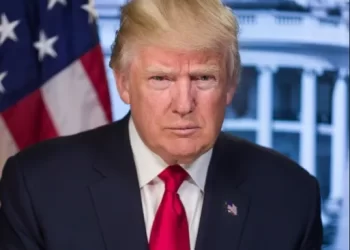This month, Prime Minister Narendra Modi will be the Guest of Honor at the Bastille Day Parade, strengthening India-France ties. On July 14, Prime Minister Modi will travel to France.
During Modi’s visit, the two countries are set to sign a defense agreement. The Indian Navy is expected to purchase 26 Rafale M (Marine) fighter jets from France.
On June 8, India, France, and the United Arab Emirates (UAE) completed their first trilateral maritime exercise in the Gulf of Oman. The two-day drill, which began on June 7, included naval assets from all three countries.
The exercise sought to improve maritime security and interoperability among participating countries. Surface Warfare, which included tactical fire and drills for Missile engagements against surface targets, Helicopter Cross Deck Landing Operations, gunnery exercises, seamanship drills, Advanced Air Defence Exercises, and Boarding operations, were all part of the event.
The Indo-French Strategic Partnership will be 25 years old in 2023. It was launched on January 26, 1998, on the occasion of President Chirac’s visit to India, and it represents both countries’ desire to enhance their separate strategic independence through concrete bilateral collaboration in order to maintain peace and global security.
According to media sources, three Indian Air Force Rafale fighter jets were involved in a military contingent, are poised to participate in the Bastille Day flypast over the Champs Elysees.
This collaboration encompasses all facets of bilateral cooperation that have a strategic component. It is centered on tight collaboration in the defense, civil nuclear energy, space, and security (cyber security, counter-terrorism, and intelligence) sectors, and it now includes a major Indo-Pacific component. It necessitates strong levels of confidence between the two countries, as well as a common desire for an equal relationship.
Defense, civil nuclear energy, space, and security are all examples of strategic issues. All of these characteristics allow France and India to maintain strategic independence, especially by limiting their reliance on third countries in these areas.
However, this relationship is not confined to a strategic cooperation; in recent years, it has expanded to include a partnership on significant global concerns for the globe (climate, environment, ocean protection, and health). So, alongside COP21, France and India established the International Solar Alliance, which is today active all over the world. Furthermore, the approval of the bilateral Blue Economy and Ocean Governance Roadmap in February 2022 formalized the Indo-French commitment to sustainable development, the judicious use of marine resources, and ocean research.
The partnership is also built on more active human and economic exchanges. As a result, the President of the French Republic has set the goal of hosting an increasing number of Indian students in France by 2025.
Furthermore, approximately 540 French enterprises and subsidiaries employ around 300,000 people in India. France and India are also expanding their trade and investment in clean energy, smart cities, innovative technology, and health.
France and India share ideals, a dedication to democracy, and a desire to support and protect multilateralism and international law. The two countries are working together to establish a multipolar world that is ruled by the rule of law and respects sovereignties.
At all levels, France and India are in frequent and thorough dialogue. Over the last 25 years, this partnership has manifested itself in a variety of ways, including India’s purchase of 36 Rafale fighter aircraft in 2016, the construction of six Scorpène-class submarines in Mumbai, encouragement for developing partnerships between industrial firms, and the joint development and launch of satellites. France and India are also committed to the success of the Jaitapur EPR nuclear power project, which will offer India with reliable, affordable, low-carbon electricity in the long run. The French and Indian forces routinely perform joint exercises (for example, Shakti, Varuna, Pegase, and Garuda), displaying their attempts to achieve greater integration and interoperability whenever possible. Dialogue is also taking place in the realms of space and cyberspace, as well as the fight against terrorism.
Source:IANS







 Finance
Finance







